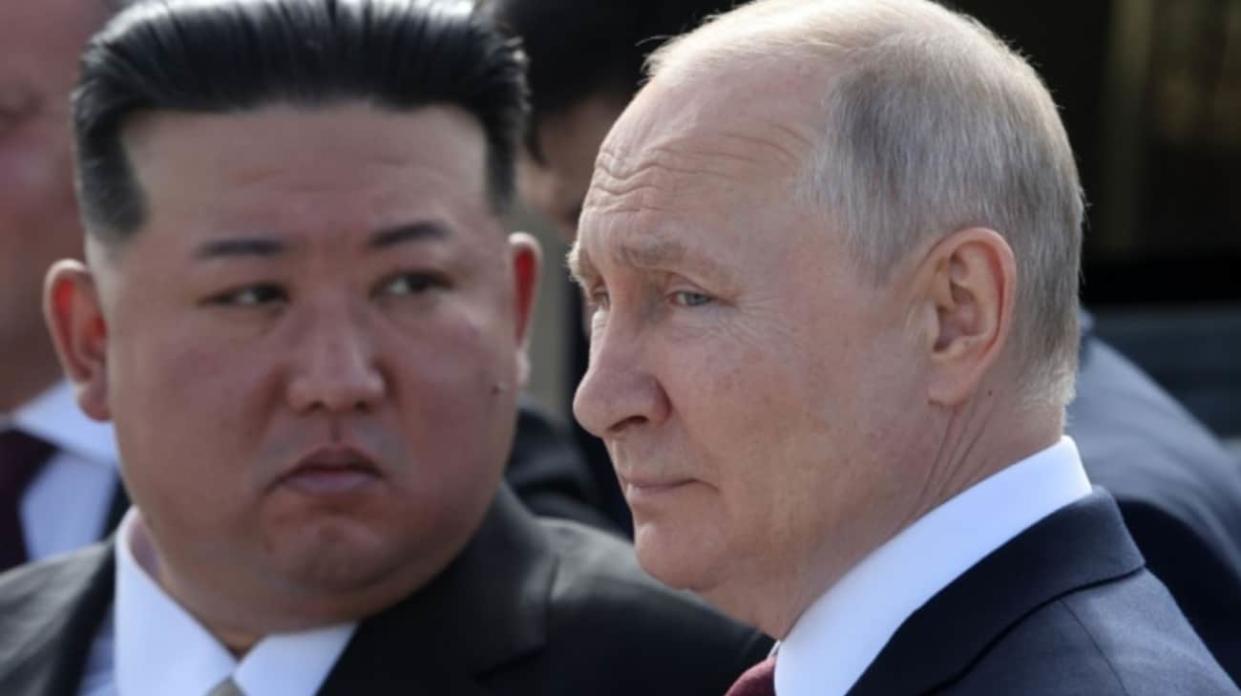Arms deals with Russia will pull North Korea's economy out of decline – DW

- Oops!Something went wrong.Please try again later.
- Oops!Something went wrong.Please try again later.
The North Korean economy stands to gain from an agreement with Russia to supply weapons for the latter's war with Ukraine, offering a potential economic boost to North Korea amid existing sanctions.
Source: Deutsche Welle (DW)
Quote: "The agreement includes the transfer of shells and ballistic missiles, enhancing Pyongyang's financial stability.
North Korea, the world's most isolated state, is this year expected to return to economic growth for the first time since before the pandemic, as weapons deliveries to sustain Russia's invasion of Ukraine boost state coffers," DW reported.
Details: South Korea's National Intelligence Service indicated that North Korea has made 10 arms shipments to Russia since August last year, totalling about a million projectiles.
Other reports suggested that Pyongyang, among other things, handed over ballistic missiles to the Russian army. Both Pyongyang and Moscow deny such deliveries.
The secret deal between North Korean leader Kim Jong Un and Russian President Vladimir Putin is likely to further stimulate North Korea's tiny centralised economy, which the South Korean Central Bank estimated at US$24.5 billion in 2022.
"Not only did COVID-19 lockdowns decimate already-anemic growth, contracting by 4.5% in 2020, but international sanctions levied in 2016 over Pyongyang's nuclear program had earlier hurt its main export of coal to China. The two crises exacerbated severe hardship in a country where 60% of the population lives below the poverty line.
The economy has been on the decline for the past five years. So the weapons deal with Russia will help a return to positive growth of around 1% in 2024," Anwita Basu, Head of Country Risk at Fitch Solutions in Europe, told DW.
Basu noted that her forecast is rough as Pyongyang does not report economic data.
Last year, North Korea's trade with China, its largest partner, recovered to pre-pandemic levels of US$2.3 billion (according to Beijing) after a sharp drop between 2016 and 2018 following the introduction of sanctions.
North Korea's defence sector is one of the country's largest employers, involving about two million workers out of a population of 26 million. The industry makes a significant contribution to the country's economy, along with agriculture.
Initially a supplier only to its own army, North Korea has found several key foreign customers for its weapons and ammunition, mostly in the former Soviet Union or sub-Saharan Africa, DW reported.
Despite the importance of the defence sector, Basu is sceptical that ordinary residents of North Korea will benefit from the arms deal with Russia.
North Korea is expected to profit at least US$1 billion from selling artillery shells to Russia, Bloomberg reported this week.
Support UP or become our patron!

